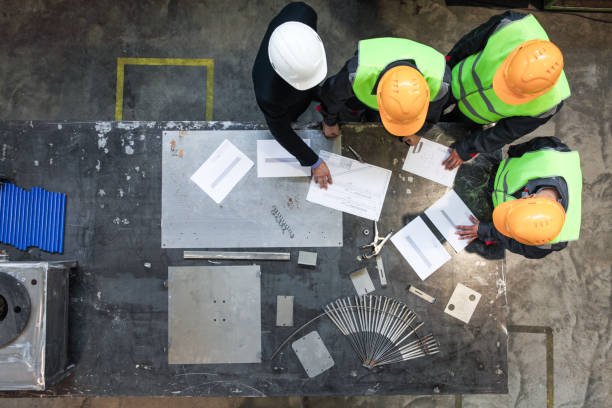Mastering Construction Management: Strategies for Successful Project
Construction management is crucial for ensuring that building projects are completed on time, within budget, and to the desired quality standards. It involves planning, coordinating, and overseeing construction activities from start to finish. Effective construction management in Miami Beach FL can significantly impact the success of a project, making it a vital aspect of the construction industry.
Key Responsibilities of a Construction Manager
Project Planning
A construction manager’s role begins with comprehensive project planning. This involves creating detailed schedules, budgeting, and defining project scope. Effective planning ensures that all aspects of the project are aligned and that potential issues are addressed before construction begins.
Coordination and Communication
Construction managers are responsible for coordinating between various stakeholders, including architects, engineers, subcontractors, and clients. Clear communication helps in managing expectations, resolving conflicts, and ensuring that everyone is on the same page.
Budget Management
Managing the project budget is a critical responsibility. Construction managers must track expenses, manage procurement, and handle financial documentation. Staying within budget requires careful financial planning and monitoring throughout the project.
Quality Control
Maintaining high standards of quality is essential for the success of any construction project. Construction managers implement quality control measures, conduct inspections, and ensure that work meets the required standards and specifications.
Risk Management
Identifying and mitigating risks is a key part of construction management. This includes assessing potential risks, developing contingency plans, and ensuring safety measures are in place to protect workers and the public.
Effective Construction Management Strategies
Utilize Project Management Software
Modern project management software can enhance efficiency by streamlining scheduling, budgeting, and communication. Tools like Procore or Buildertrend help construction managers keep track of project progress and facilitate collaboration.
Implement Lean Construction Techniques
Lean construction focuses on maximizing value while minimizing waste. By adopting lean principles, construction managers can improve efficiency, reduce costs, and enhance project outcomes.
Foster Strong Team Collaboration
Building a cohesive team is essential for successful project execution. Encouraging collaboration and maintaining open lines of communication help resolve issues quickly and keep the project on track.
Invest in Training and Development
Continuous training and professional development are vital for staying current with industry trends and best practices. Investing in your team’s skills ensures they are equipped to handle the complexities of modern construction projects.
FAQs
What does a construction manager do?
A construction manager oversees all aspects of a construction project, including planning, coordination, budgeting, quality control, and risk management. Their goal is to ensure the project is completed successfully, on time, and within budget.
Why is construction management important?
Construction management is important because it helps ensure that projects are completed efficiently, safely, and to the highest quality standards. Effective management minimizes risks, controls costs, and ensures that project objectives are met.
How can technology improve construction management?
Technology, such as project management software and building information modeling (BIM), can improve construction management by enhancing scheduling, communication, and project tracking. It allows for better planning, increased efficiency, and more accurate project oversight.
What are some common challenges in construction management?
Common challenges include managing project costs, coordinating between multiple stakeholders, addressing unforeseen issues, and ensuring quality standards are met. Effective planning and communication are key to overcoming these challenges.
How do construction managers handle project delays?
Construction managers handle project delays by identifying the cause of the delay, assessing its impact, and developing strategies to mitigate the delay. This may involve adjusting schedules, reallocating resources, or addressing any issues that caused the delay.
Summary
This article provides a comprehensive overview of professional construction management, highlighting its importance and offering practical strategies for successful project execution. By focusing on planning, coordination, and effective risk management, construction managers can drive projects to successful completion.









